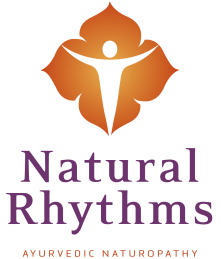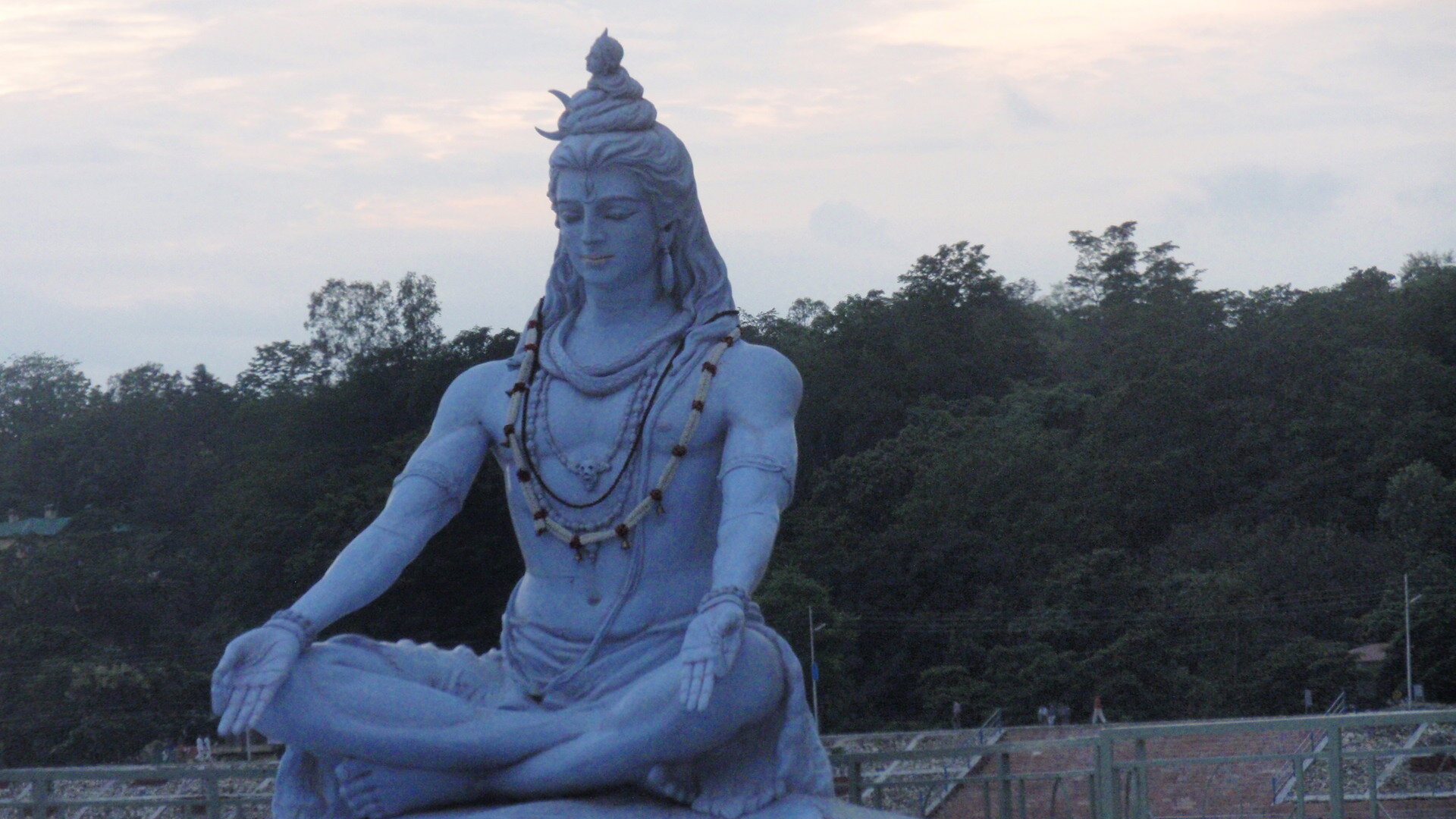Ayurvedic daily routines are a therapeutic practices intended to optimize our physical, mental/emotional, spiritual health. The two actions of stimulation and nourishment are like levers to affect our physiology to guide it towards balance and health. Balance in our physiology engenders an internal feeling of peace, strength, vitality and bliss. As we press and pull these levers through various means of our daily routines, we can build a foundation of optimal health, well-being, and longevity.
In Ayurveda, emphasis is placed on daily routine practices because this helps to weave the process of healthcare into our daily life. In Western philosophy of medicine, the practice is of healthcare is deliberately kept separate from our daily life, routines, and self-care. This makes healthcare seem like something very professional and special. Ayurveda seeks to avoid this distinction because the knowing that process of healthcare begins in our daily life, puts power of healing in our hands. This makes the practitioner less of an authoritarian overlord and more of a companion guide to hone your skills for cultivating and maintaining wellness, overtime gaining mastery over the physical, mental/emotional, and spiritual aspects of your life.
An old Chinese proverb states, “A good practitioner is one who treats disease from its root, a great practitioner is one who never lets disease take root.” Ayurvedic science of “Dinacharya”, meaning daily routines, seeks to make each one of us that practitioner. In this article, I would like to share with you a survey of daily routine practices that are outlined by Sage Vagbhata in his Treatise: Ashtanga Hridaya.
Ashtanga Hridaya (Sutrastana, Chapter 2):
Waking: between 3am-6am is recommended to wake-up with the peace of dawn, to cultivate a peaceful state of mind.
Cleaning teeth: Cleaning teeth with a toothpaste with pungent, bitter, and astringent herbs like neem, pomegranate, cinnamon, clove, etc.
Eye wash: with 1-2 drops of water-based or ghee-based triphala eye drops are applied for cleansing and nourishment of the eyes. A classical formulation called triphalanjan is idea
Cleansing the sinuses, throat, and lungs: Nasal drops applied to the nasal passages, gargling with warm lightly salted water, and lighting herbal incense of frankincense or myrrh to cleanse the lungs.
Morning Meditation: This practice helps to establish a calm baseline for mental/emotional state and nervous system. A short practice of breathing exercises and sitting or movement meditation is done.
Self-massage: massage helps with energy, quality of sleep, strength, and digestion. For daily practice, massage to the head, ears, and feet is recommended. Full body massage is done once or twice per week.
Those with Vata and Pitta dominant constitution oil massage is recommended.
Those with Kapha dominant constitution herbal powder massage is most beneficial.
Exercise: Vagbhat recommends that daily exercise should be done to about ½ of the person’s capacity to prevent over-exertion.
Individuals with Vata and Pitta constitution benefit from exercise in the afternoon and evening. Individuals with Kapha constitution benefit from exercise in the morning. This is due to different metabolic and psychological effect caused by exercise.
Mild/moderate intensity yoga is beneficial for all constitution in the morning.
Bath/Shower: the body should be cleansed after these morning practices to cleanse toxins mobilized and drawn out from all the pervious practices.
Meals: meals should be taken at consistent times each day to support a rhythms digestion and elimination. First meal is taken after the bath/shower, last one of the day is taken 2-3 hours before bed time.
Personal Conduct: Some guidelines for good conduct are included as part of daily practices to help keep the mind and consciousness clean when moving through the world.
Sage Vagbhat explains: “Compassion with all beings, kindness and generosity in conduct, moderating the activities of body, speech, and mind; looking after the interest of others, these are sufficient rules of good conduct (moral behavior)”
Non-violence: Vagbhata describes “Even the insects and ants should be treated with kindness and compassion, just as one’s own self.” Being respectful and non-harm in thought, speech and action is practiced with friends and foes alike. It is a way to protect oneself from internalizing negative energy and negative karma.
Cleanliness of speech: One’s words should be used in good humor, kept brief, truthful and appropriate for the occasion.
Conduct with others: “Keeping in mind nature of people, one should deal with each person in such manner as best pleasing to them, becoming well versed in the art of adoring others.”
Pursue activities that serve one of three goals: righteousness, generate means for living (money and other resources), or pleasure. All activities are to be done in moderation, avoiding extremes of effort and attachment.
Practices for self-reflection and cultivation: “For an intelligent the whole world is a teacher”. So, before the close of the day, one should review and examines one’s experiences and actions to determine these can be improved upon.
Vagbhata explains “one who adopts the right way (in personal conduct and worldy actions) will never become a victim of sorrow.”
Bedtime routines: Going to bed at the same time at night is recommended to improve ease of falling asleep and quality of sleep.
One may apply oil on the crown of the head, in the ears and base of feet to help with quality of rest.
Breathing exercises like alternate-nostril breathing and So-Hum breathing are helpful to induce mental stillness and sleep as well.
Vata and Pitta dominant individuals benefit from 6-8 hour of sleep. Kapha dominant must try to get 7-9 hours of sleep consistently. Sleeping more or less can be detrimental to digestion, strength, and energy.
These are trying times for all. No one is spared from the physical, mental/emotional, and spiritual despair of this moment. All of us are subject to the global, national, community, and personal challenges. Getting through is just not enough, we must thrive and take a personal, spiritual flight.
So, we would like to encourage you to practice “Day of Ayurvedic Self-care” to experience a day in the life with Ayurveda.
Not sure which constitution you are?
Have questions about how to deepen your self-care routines?




